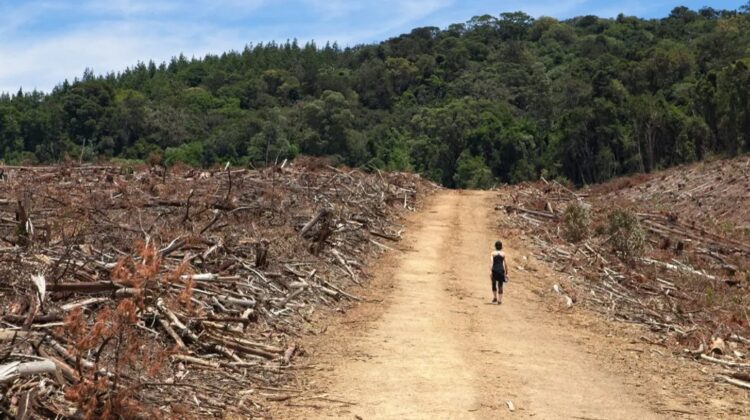
According to a study published in the Nature journal Scientific Reports, there is a “very low probability” that civilization on Earth will survive the upcoming few decades without experiencing a catastrophic collapse.
Modeling was used by two researchers from Chile and the UK to examine how rates of resource consumption, particularly in terms of deforestation, impact the capacity of human society worldwide to support itself. According to their calculations, there is only a 10% chance that human civilization will be able to survive the next 20 to 40 years without experiencing a catastrophic collapse.
The authors of the study state, “From a statistical point of view, we conclude that the probability that our civilization survives itself is less than 10% in the most optimistic scenario.
Calculations reveal that if population growth and resource consumption, particularly forest consumption, continue at their current rates, civilization will collapse irreversibly in a few decades.
They continued, “It is difficult to imagine that significant changes of these parameters will occur in such a time scale in the absence of very strong collective efforts.
Obviously, all of this is hypothetical. The study’s authors, both mathematical physicists, used modeling to comprehend a variety of complex systems, from intricate biological processes to complex social systems. This highly theoretical strategy does have some drawbacks. The researchers note that some of the assumptions made in their work (such as population growth and the rate of deforestation) are not guaranteed to hold true. Additionally, the forest is used as a stand-in for all resources, which may be overly simplistic.
The study nevertheless presents a compelling picture of the threat that population decline and widespread deforestation pose to human society as a whole.
The study focuses primarily on the consumption of trees and deforestation. For both people and the larger ecosystem, trees are a priceless resource. They play a crucial role in numerous crucial systems, including the carbon cycle, oxygen production, soil conservation, and the water cycle, in addition to supporting natural and human food systems. Therefore, the researchers claim that as soon as deforestation occurs, there won’t be enough resources to support the world’s population, leading to a “disastrous collapse” of the population.
All of Earth’s forests would vanish in 100 to 200 years if deforestation continued at its current rate. However, the study forecasts that issues will arise due to the lack of forests long before the planet’s trees are completely extinct.
It is obviously unrealistic to think that human society would only begin to be impacted by deforestation once the last tree is felled, the authors write. “The gradual environmental deterioration brought on by deforestation would have a significant impact on human society and, as a result, the collapse of humanity would begin much earlier.”
Humans are remarkable for their capacity for adaptation and innovation. As a result, you might anticipate that science and technology will create solutions to this issue. According to the report, however, “our technological level is in competition with the consumption of the natural resources, in particular the forests.” In other words, unless there is a significant paradigm shift, we are more likely to destroy forests as technology advances.
The researchers also speculate on the so-called “Fermi paradox” and the mystery of why, given the high likelihood of their existence, we have not yet discovered another advanced alien civilization. The researchers note that some think only a very small number of civilizations would be able to advance far enough technologically to leave their solar system without running out of resources. In essence, aliens exterminate themselves before they develop the technology to begin an interstellar exploration.
These are possibly the problems that Earthlings will face in the next few decades, according to the researchers, unless civilization changes remarkably quickly.

Leave a Reply